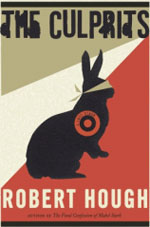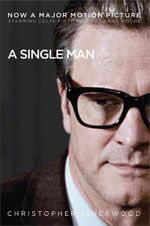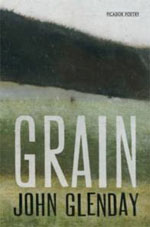
Early in his own reading of Fauna, a panelist with the National Post Afterword Reading Society referred to the urban wild settings in the book as “a kind of subconscious of the city”.1 I latched on to that observation about one-third of the way through my own reading of Alissa York’s fine novel. I found that characterization of Toronto’s Don river, valley and ravines as the subconscious, the undercurrent and the foundation of this haunting urban wildlife love story gorgeously informed my Fauna experience. “Characterization” is probably a particularly apt word, as the urban wild settings are almost a collective character unto themselves. York sensitively and unforgettably weaves the presence of this character throughout a tale of damaged souls struggling to survive in a large city and in the world in general.
Fauna’s characters, separate and with seemingly little in common initially, cross paths, converge and ultimately connect against a background that runs the gamut from the office towers of the city’s intimidating financial district, to the sweeping roadways and busy streets, to the lush, labrynthine, simultaneously welcoming and sinister forests, bushes, creeks and ravines. York deftly handles multiple voices and perspectives, including those of a federal wildlife officer on stress leave, an auto wrecking company owner and self-taught wildlife rescuer and sanctuary manager, a homeless teenager and her faithful dog, a veterinarian specializing in animal rehabilitation, a young military veteran and a controversial blogger who might or might not be on a deadly mission. Each character is troubled in one form or another in the present, but can also trace many current tribulations and challenges to dark chapters and influences in their respective pasts. They gravitate to each other through their love of and connection to nature and animals. In one case, where that love and connection do not exist, the character hostile to nature is tragically isolated. York’s facility with balancing different voices and points of view extends beyond the human. The sections seen through the eyes of various urban wildlife are sufficiently convincing and germane to the story and its themes of personal and collective survival. This multi-layered approach is only occasionally an impediment to this otherwise engrossing novel when some of the switches are made a little too quickly, when you’d perhaps rather spend just a few more pages or even paragraphs with a specific character or situation. Do I find this book resonates so much because the Toronto backdrop is literally so close to home? Perhaps, but I hope it would similarly strike a chord with any citizen sensitive to that same urban wild undercurrent in his or her own city.Notes:
1. The Afterword Reading Society (National Post)
I’m really enjoying how Alissa York manages to incorporate the wilds of the Don Valley and Toronto’s ravines in this novel. To me those areas are a kind of subconscious of the city and it’s just more than appropriate that Fauna’s characters spend their time moving in and out of it.
Ron Nurwisah, National Post arts editor
2. The terror within (The Globe and Mail)
When humans respond with fear to a threat from a predator, they should remember who the most dangerous animal on the planet is
Essay by Alissa York
I think [American writer and naturalist] Barry Lopez was right: While a cautious approach to any wild animal is only sensible, a phobic response is less about the beast in the underbrush than it is about the beast within. When we refuse to look inward – when we fix our fear on the head of a coyote or any other fellow predator – we miss the opportunity to face up to our own demons.








